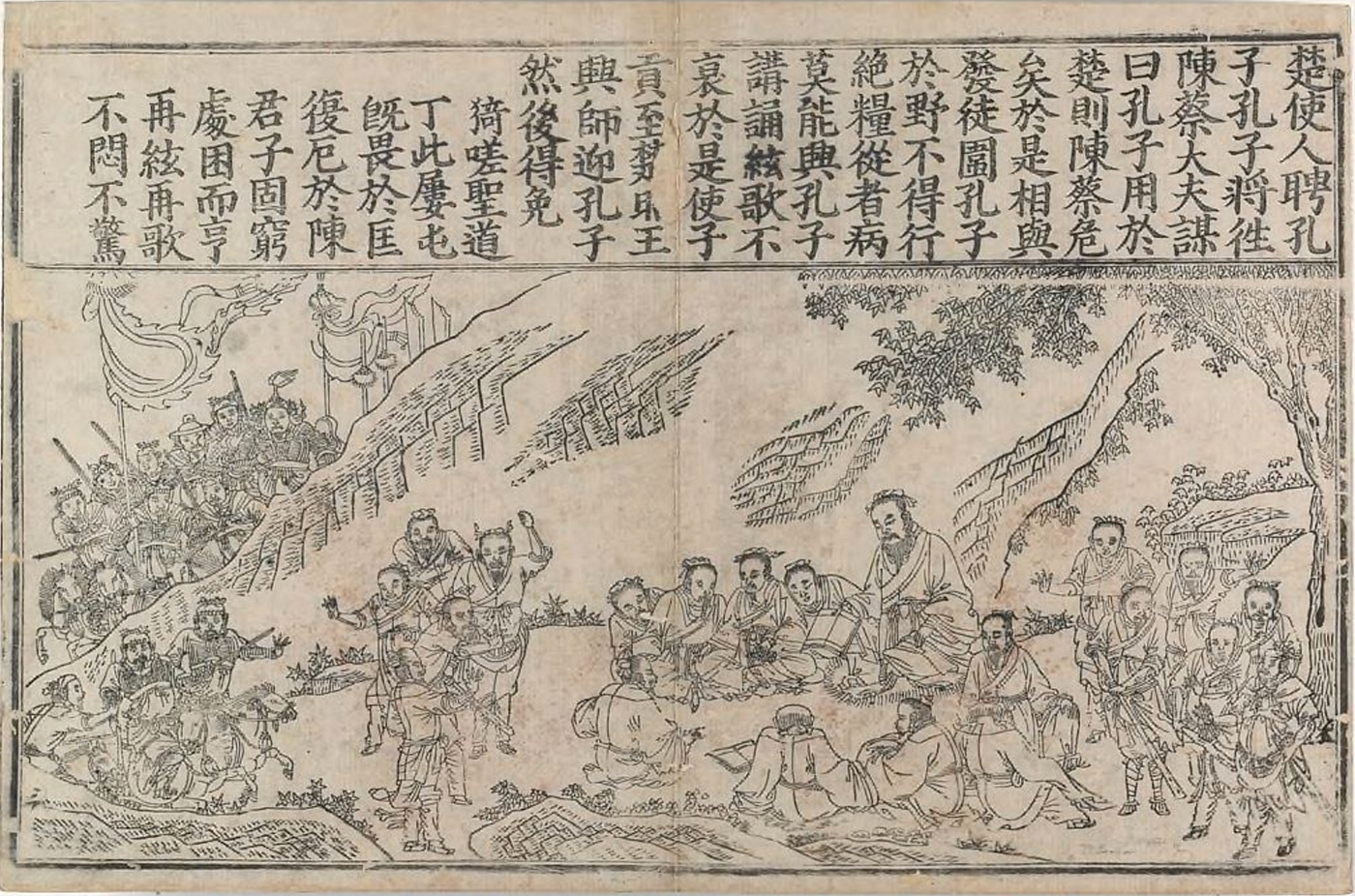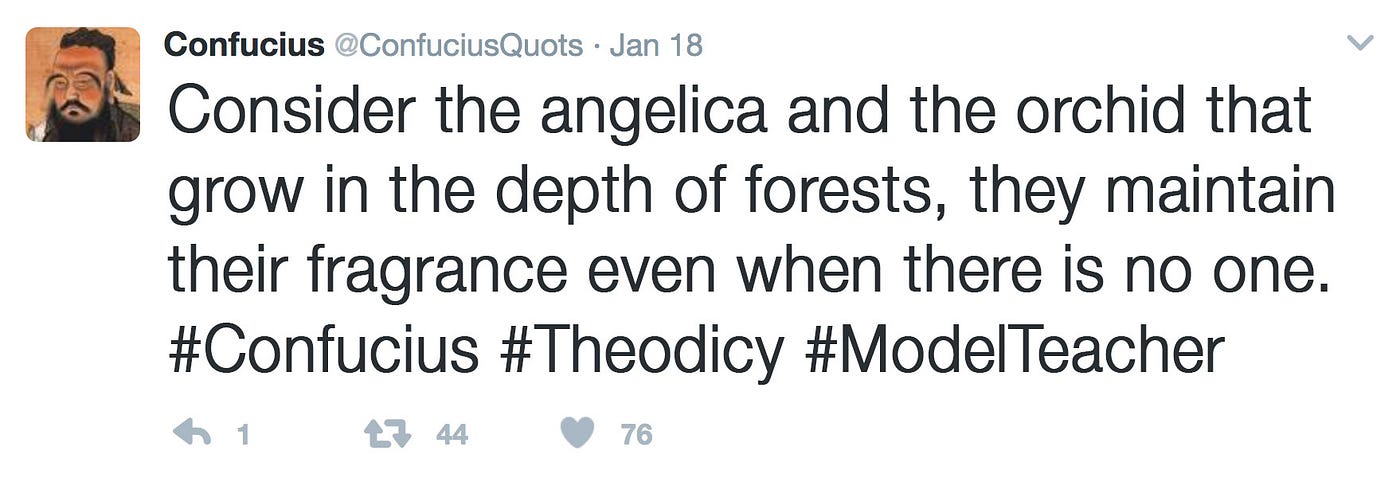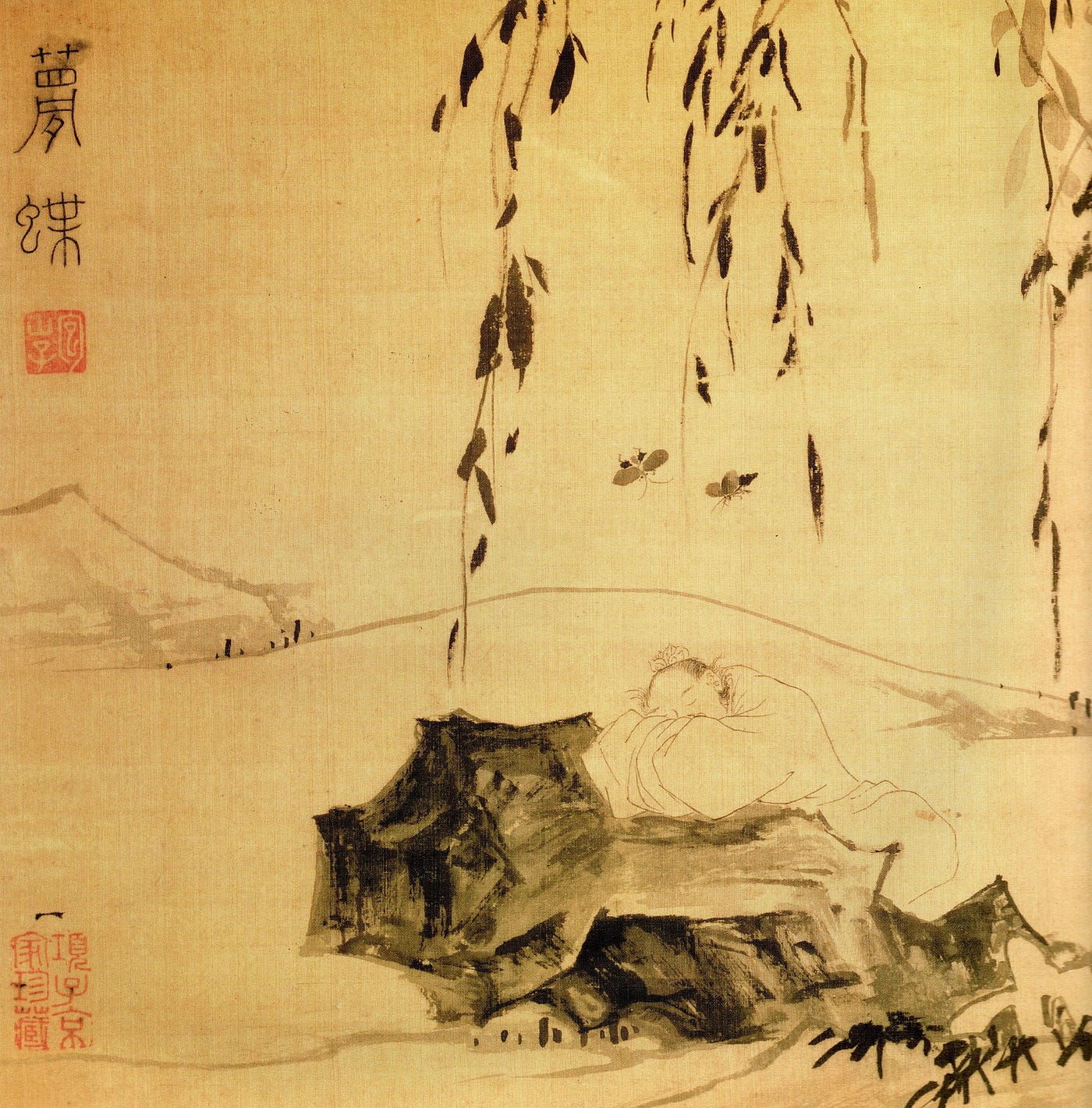Heng Du — Ph.D. Candidate in Chinese Literature and Fairbank Center Graduate Student Associate —describes how Twitter #hashtags emulate the narrative setting of philosophical texts during China’s Warring States period.
In the beginning of Twitter, there were words. But the words were in great chaos, and it was difficult to form conversations. Then a user suggested, “Let there be hashtags!” With this inspired touch, it became possible to organize the cacophony of tweets into streams of discourse, swirls of group discussions, as well as waves and cascades of reactions, parodies, and play.

If Twitter began as a primordial soup of 140-character units, the landscape of Chinese texts during the Warring States period (5th century — 221 BCE) was similarly fluid. In those centuries, bamboo slips bearing small units of texts — aphorisms, verses, lists, anecdotes, jokes, paragraphs of philosophical teaching or practical wisdom — circulated in relative independence and freedom. These tidbits of texts were eventually collected and redacted into book-length compilations, giving birth to many of China’s foundational texts. The Analects attributed to Confucius, for instance, is a compilation of such vignettes and wisdom sayings.
Anecdotes — small narrative sketches — appear to be the most popular genre among this pool of texts. In view of how frequently the same story is retold, this proliferation of anecdotes seems to have been driven not so much by an interest in historical minutiae as by a fondness for rewriting existing narratives.
There are, for instance, many versions of an anecdote concerning Confucius’ travails between two dukedoms named Chen and Cai, where for days he and his disciples were stranded and in want of food. Why were early Chinese writers so fond of rewriting the same story? This is an important question for understanding the flourishing of anecdotes and its relationship to the modes of intellectual discourse in this period.

Surprising as it may sound, today’s internet culture often sheds a light on Chinese texts from the first millennia BCE. People in both worlds communicated in small units of writing, and managed to carry on extensive discourse through a chaotic free-flow of texts.
As an early Chinese anecdote underwent repeated rewriting, its narrative frame could begin to function a bit like a hashtag. Just like a hashtag, this narrative frame can supply meta-information concerning the ideas it contains, such as its projected audience, its main concern, or what it is responding to. Furthermore, they offer a way to shape aimlessly circulating messages into threads of conversations.

In the same way that a hashtag is repeated in multiple tweets, the narrative frame of an early Chinese anecdote also tends to be its most recurrent and formulaic part. Anecdotes sharing the same narrative usually open in nearly identical fashion, even if what follows is not at all alike. Almost all of the Chen and Cai anecdotes, for instance, open with a version of the phrase “Confucius is in dire straits between Chen and Cai.” While the depiction of the group’s hardship are strikingly similar, Confucius’ behavior and speech vary greatly from version to version.
Confucius’ disciple confronts the master by asking: if “heaven repays those who do good with blessing and those who do bad with misfortune,” why did he end up in such a wretched state?
Many of these recurring narratives seem to evoke specific philosophical topics or questions. Associated with the story of Confucius between Chen and Cai, as far we can deduce, is the question of theodicy, namely why good people suffer if heaven were inherently just. Confucius’ suffering is presented as a Jobian moment, where a good man is dealt a terrible hand.
In several versions, Confucius’ disciple confronts the master by asking if “heaven repays those who do good with blessing and those who do bad with misfortune,” why did he end up in such a wretched state? The disciple seems to be wondering whether his master had secretly committed wrong. Texts that open with this Chen and Cai narrative tend to be tackling this question of theodicy, even if their answers diverge.

The #Confucian Confucius
In versions found in texts with Confucian affiliation, Confucius tends to remain unperturbed in the face of suffering. In some of them, he answers the disciple’s question by offering a meditation on the allotment of agency between human and heaven, before calling on moral individuals to persevere in what is within their power of control. “Consider the angelicas that grow in the depth of forests,” says Confucius in the Xunzi, “they maintain their fragrance even when there is no one [to appreciate them]. A gentleman’s learning is not for success, but in order that in privation he does not despair” (Xunzi, “You zuo” 宥坐). The Analects version articulates a similar sentiment, “In privation, a gentleman becomes resolute, while a petty man gives away to dissolution” (Analects 15).

Confucius @Mozi
The version found in the Mozi differs drastically, reflecting the perspective of Confucians’ earliest rivals, the Mohists. After the formulaic opening, we are presented with a Confucius who feasts on stolen food and wine while his disciples starve. It goes on to contrast this scene with Confucius’ sanctimonious behaviors at court, suggesting that his reputation as a moral paragon is only an elaborate facade (Mozi, “Fei Ru xia” 非儒下).
While this version does not explicitly talk about theodicy, juxtaposed with other Chen and Cai anecdotes, we can recognize the same set of questions that are lurking in the background: Has the master committed wrong? Yes indeed! Is heaven then just?
The Mozi has explicitly asked this question elsewhere, for its ideal political system depends on the belief in an active and just heaven. From its answer, it is apparent that the Mozi universe cannot admit an amoral heaven, so much so that the historical precedents it cites are limited to the noble kings who prospered and the tyrants who were overthrown (Mozi, “Tianzhi xia” 天志下). If embedded in the Chen and Cai story is the theodicy dilemma, the Mohist solution is quite consistent with its overall attitude: Heaven is always just, and Confucius, contrary to appearances, deserved his tribulations.

Confucius @Zhuangzi
A final example can be found in the Zhuangzi, a text from the Daoist canon. After the formulaic description of the group’s suffering, Confucius offers an entirely different answer to the theodicy question — by tackling the premise of the question itself. “Hunger and thirst, heat and cold might seem like privation and impasse, but they are in fact the movement of heaven and earth, the discharge of the evolving things… one must drift along with it.”
This Confucius seems to say that the events in our lives are neither good or bad, once we no longer examine them through the lens of our value system; theodicy, consequently, is only a dilemma when we restrict ourselves to the human perspective. If heaven seems indifferent to our suffering, why not cultivate yourself to be more like heaven, so that you might no longer perceive suffering as such? While the Confucians’ Confucius ruminates over the distinction between human and heaven, the Zhuangzi Confucius contends, “human and heaven are one and the same” (Zhuangzi, “Shanmu” 山木).

Reading an early Chinese compilation by itself is sometimes a bit like looking through a person’s Twitter feed, where a miscellanea of texts are strung together without identifiable logic. However, once we pull together anecdotes sharing the same narrative frame — much like following tweets with the same hashtag — we often end up reconnecting the dots between the traces of an ancient conversation. The passages we have just surveyed are scattered in different compilations, but on account of their shared narrative frame, we can bring them back together to reconstruct a discourse on the question of theodicy.
Was rewriting a story a way to sustain a dialogue or a debate? Perhaps what flashed in ancient readers’ mind was something like #Theodicy, when they encounter a bamboo manuscript that begins with: “Once upon a time, when Confucius was in dire straits between Chen and Cai…”
Heng Du is a Ph.D. Candidate in East Asian Languages and Civilizations, and a Fairbank Center Graduate Student Associate at Harvard University.


